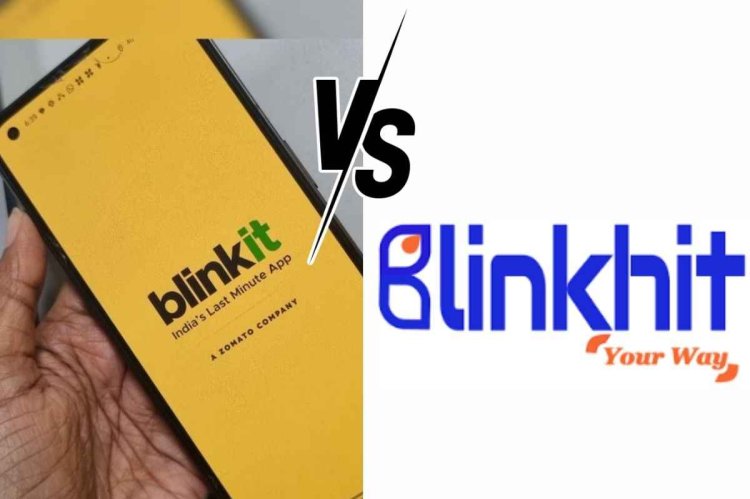Blink Commerce Pvt Ltd. v. Blinkhit Pvt. Ltd
This legal case involves a dispute between Blink Commerce Private Limited (appellant) and Blinkhit Private Limited and others (respondents) regarding the trademarks "BLINKHIT" and "BLINKIT." The respondents alleged infringement, leading to the appellant contesting the claim based on the revocation of the respondent's trademark registration in Australia and the differences in their respective businesses. The High Court of Karnataka overturned the trial court's temporary injunction, emphasizing that the registration of a composite mark does not confer exclusive rights over its individual elements. The decision underscores the significance of considering business nature and consumer confusion in trademark infringement cases.

Blink Commerce Pvt Ltd. v. Blinkhit Pvt. Ltd
2023 SCC OnLine Kar 22
Decided on: 17TH April 2023
17-04-2023
Court: Karnataka High Court
Facts
The case at hand revolves around a legal dispute between two private companies, namely Blink Commerce Private Limited (the appellant) and Blinkhit Private Limited along with others (the respondents). The main point of contention is the usage of the trademarks "BLINKHIT" and "BLINKIT." The respondent-plaintiff claims to have obtained registered trademarks for "BLINKHIT" and "iBLINKHIT." The plaintiff alleges that the defendant's use of the mark "BLINKIT" infringes upon their registered trademark, which has led to a legal battle between the two parties. To halt any further infringement, the respondent filed a suit seeking a permanent injunction and other reliefs, and along with the suit filed an application for a temporary injunction. The trial court granted the temporary injunction, which was then appealed by the defendant to the High Court of Karnataka.
Analysis and Reasoning:
During the court proceedings, both the appellant and respondent presented their arguments. The appellant claimed that the respondent's trademark registration did not give them exclusive rights, as the registration had been revoked in Australia. The appellant also argued that their business was different from that of the respondent, and there was no reason for the respondent to file a lawsuit. The appellant further asserted that the marks were visually, structurally, conceptually, and phonetically different. Therefore, there was no chance of confusion or deception.
The court referred to a previous decision by the Supreme Court in S. Syed Mohideen v. P. Sulochana Bai1, which had established that trademark registration only acknowledges pre-existing common law rights and does not create new ones. The court agreed with the appellant that the registration of the combined "BLINKHIT/iBLINKHIT" mark did not grant exclusive rights over the individual marks "BLINKHIT" or "iBLINKHIT." The court also recognized that the type of business conducted by the appellant was different from that of the respondent.
Holding and Decision:
The High Court has granted the appeal and set aside the trial court's order, which had allowed a temporary injunction to the respondent. The Court concluded that the respondent's registration of trademarks did not provide them with exclusive rights over the individual marks. There was no prima facie case of infringement.
The Court reasoned that registering a composite mark "BLINKHIT/iBLINKHIT" does not give exclusive rights over individual marks "BLINKHIT" or "iBLINKHIT." The registration only recognizes the pre-existing common law rights associated with the composite mark as a whole. In this case, the appellant's use of the mark "BLINKIT" was visually, structurally, conceptually, and phonetically different from the respondent's registered marks. Therefore, the court found that there was no likelihood of confusion or deception among consumers.
The Court also considered the nature of the business carried out by both parties. The appellant's business activities were different from those of the respondent, which further reduced the likelihood of confusion. The Court emphasized that the respondent's registration of the trademarks did not provide them with a monopoly over all variations or combinations of the word "BLINK" in relation to goods or services.
The Court concluded that the respondent failed to establish a prima facie case of infringement. Therefore, the trial court's order granting the temporary injunction was set aside.
The High Court's decision clarifies that the registration of a composite mark does not grant exclusive rights over the individual elements of the mark. Trademark registration protects the overall combination and distinctive character of the mark as a whole, rather than each component separately. Additionally, the court's analysis emphasizes the importance of considering the nature of the parties' businesses and the likelihood of confusion or deception among consumers when determining trademark infringement.












